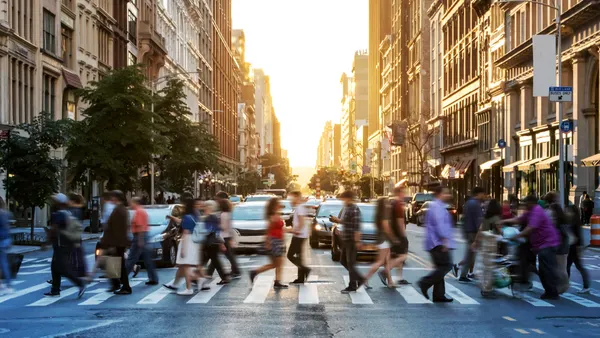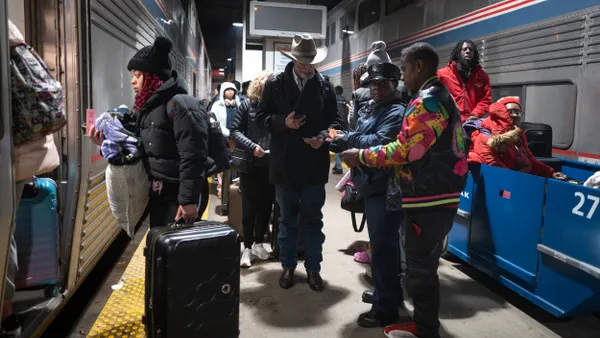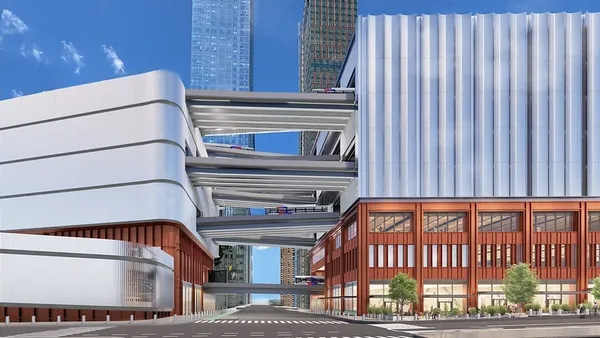Editor's Note: The following is a guest post from Michael Allegretti, chief strategy officer at Rubicon Global.
Let's say a commuter is living paycheck to paycheck. She gets up one morning to go to work, jumps in the car, and moments out of the gate, drives over a pothole causing significant damage to the front axle. The result: an unscheduled day off work and a several-hundred-dollar bill to pay for repairs to the axle, a new tire and installation.
Potholes are more than just a consistent daily annoyance. They represent thousands of dollars that commuters, truck drivers and fleet managers otherwise wouldn’t have spent. They represent not being able to physically get to work, losing money and potentially even reducing job security.
They also represent the day-to-day, human element of America’s crumbling infrastructure.
Keeping streets clean is one of the core functions of a well-run city. This means more than just filling in potholes, of course. If you preside over a city that is affected by winter weather, snow and ice removal will also fit into this category. Similarly, on-time trash and recycling pickup is a requirement for every mayor in cities around the world.
So if clean and safe streets, snow removal and trash pickup are three major priorities of mayors, what's the problem with executing them? Budgets.
Mayors are required to do more — with less — than ever before. Shrinking city budgets have put mayors in a bind where it comes to providing basic services for their citizens, while at the same time ensuring that they have the financial resources they need for mandated city programs.
The situation only worsens as our nation’s infrastructure continues to deteriorate, as more frequent and intense winter storms take an increasing toll on our roads and as more waste and recyclable materials move to the doorsteps of American homes thanks to e-commerce.
Despite these challenges, mayors and city leaders want to do right by the environment. However most roads are funded by local, state and federal gas taxes, which creates a sustainability issue. As vehicles get more efficient, and electric cars slowly become more prevalent, gas tax revenues are inevitably going to fall.
Amir El-Sibaie of the Tax Foundation wrote an analysis noting, while the gas tax may be a sustainable policy now, electric vehicles are predicted to be as affordable as gasoline-powered vehicles by 2025, and "electric vehicle sales are forecast to overtake traditional internal combustion engine vehicle sales by 2038."
The solution
City residents and commuters deserve for the streets around their home and place of work to be clean, safe, and secure. That’s table stakes for being a city mayor.
The solution to doing all of this on an ever-shrinking budget is technology. When a city moves to a technology-based, data-driven model of dealing with these issues, they can achieve improved operational efficiency and better customer service for their residents.
Looking at potholes specifically, smart city technologies allow for a city’s waste haulers to collect and analyze data as they go about their regular trash and recycling collection routes, essentially becoming "roaming data collection centers" that allow a city to flag a pothole and log its coordinates, with this data being uploaded to the cloud. The same is true for everything from cracks in the road, crumbling sidewalks, snow buildup, graffiti, and illegal dumping, to name but a few.
As a city mayor, when you embrace smart city technologies, you can recognize and address these issues sooner. While such technologies won’t be able to help those of us who have recently driven over a pothole to the tune of a $700 bill, it may be the cure that mayors need to address these issues on a shrinking budget.
When a pothole, crack in the road or crumbling sidewalk sits untreated, it tends to get worse as vehicles continue to pass over it, growing more fragile over time. Think of this as a metaphor for your city. When you improve the physical road conditions, infrastructure, and cleanliness of your city streets, your city’s residents will take note, and in turn, they will all do their part to help make things better.
Fixing potholes, after all, is something everyone can get behind.









